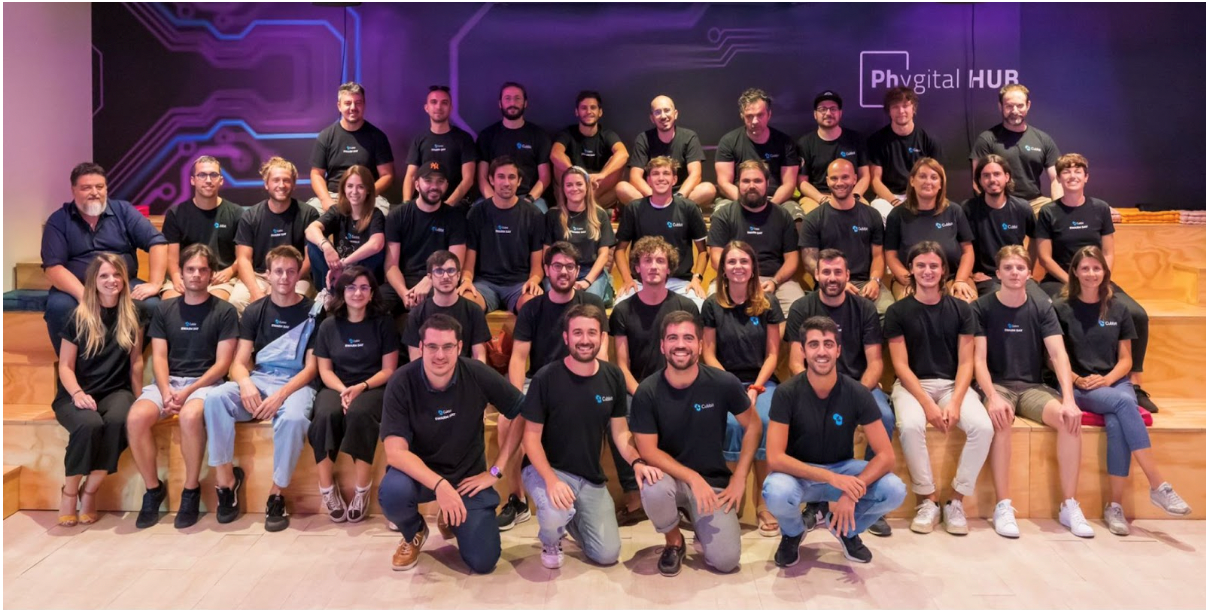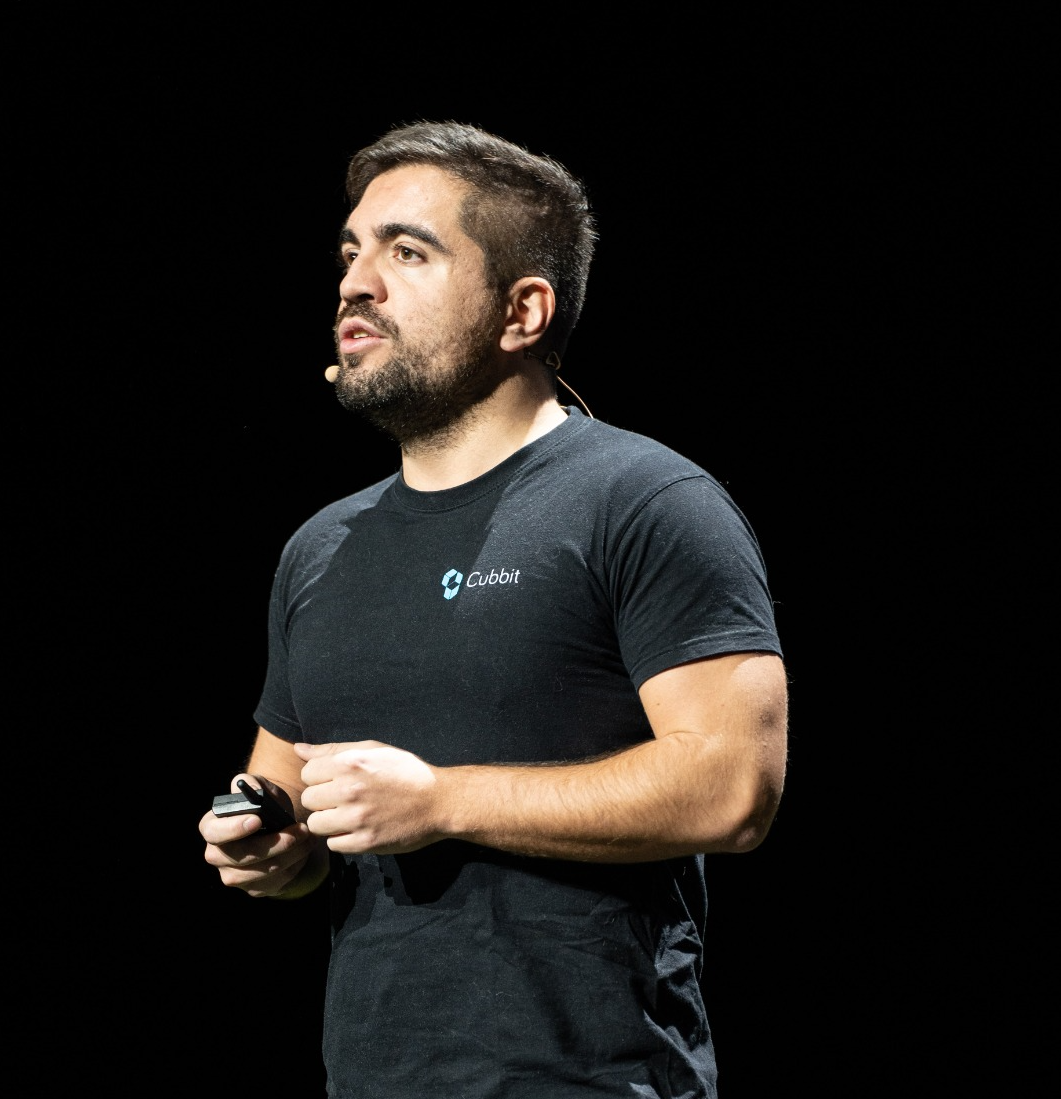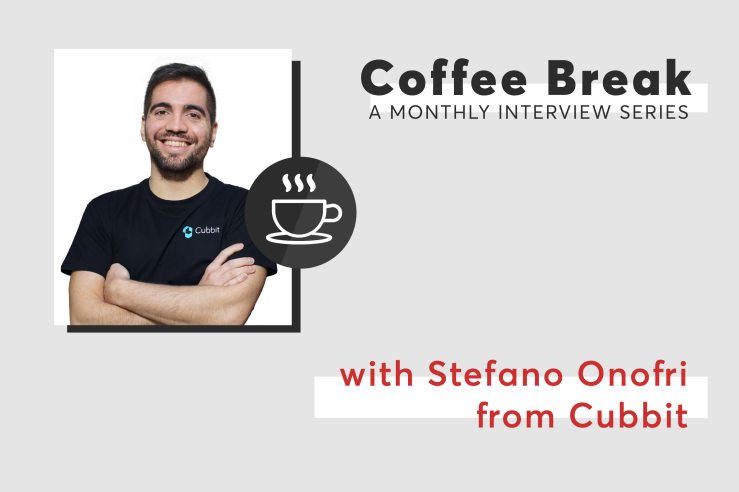Every month, during a Coffee Break, we dive into the stories of EIC innovators and get a glimpse of the people behind EIC projects. Today’s guest is Stefano Onofri, cofounder and co-CEO of Cubbit.
Cubbit has developed the geo-distributed cloud. Instead of building a new data centre, Cubbit software runs on an encrypted network in the hands of the customers themselves. Free from superfluous infrastructural costs, the geo-distributed cloud is private by design and protects users’ digital sovereignty while preventing energy waste. Find out more about their story in this month’s EIC Coffee Break.
Can you tell us how the idea for your innovation started? Was it something that was bouncing in the back of your head for a long time?
All of Cubbit’s co-founders met at the School of Excellence at the University of Bologna. We all came from diverse backgrounds; I did International Management, while my partners Marco, Lorenzo and Alessandro are respectively trained in software engineering, physics and law. Back in the day, we spent a lot of time developing projects, coding and building new things.
At one point we needed storage. We were students with no money, so we needed to find a way to host our projects without spending too much. We figured out that if every user of the service would contribute to hosting one part of it, we would not need to pay for someone else’s data centre. In other words, we would be able to crowdsource our own infrastructure for our project. That was the ‘Eureka’-moment for us.

How did your family respond to this idea?
Some of the family members were keen on passing the state exam right after graduating from university. In other words, pursuing an ‘ordinary’ career. Luckily, we stuck together and gained our family’s support along the way. Even beyond that, because our first office was a flat owned by Marco’s family in downtown Bologna. It was temporarily unused, so we renovated it ourselves and used it as an office space during the day. In the evenings we would rent out the rooms on Airbnb and with that money, we bootstrapped the early days of Cubbit.

Can you tell us a little bit about a tough moment you had within the company and how you managed to push through this?
Early 2018 was probably the moment where we were closest to failure because, by that point, we had zero money. We were also working other jobs in the startup sector, so we self-funded the operation entirely. Luckily shortly after, we won several grants, including one from Horizon 2020. In April 2018, we got selected by Techstars and became the first Italian startup they ever invested in. Years later, it’s interesting to look back at that period, knowing that we raised over 10 million in equity and grants in the meantime.

What advice can you give to people currently thinking of founding a startup?
Talk with your client and try to pretotype as much as possible, e.g., offer to prospect something that simulates the benefits of your product, but does not require building it in the first place. Even a promise is an MVP.
Manage to obtain early adopters and bring people to the table who will say ‘I know you still have to build this, but I want this solution so badly that I’m willing to help you’. We were able to reverse engineer and make pretotypes to gain traction at different levels, even if the product wasn’t there already. You’re always struggling with the chicken and egg problem: how can I have clients if I don’t have a product, and how can I raise money if I don’t have a validated product with clients? Making things as simple as possible and splitting them into many pieces helps in this regard.
What are you currently reading or what book inspires you the most, be it personal or professional?
Currently, I’m reading ‘No Rules Rules: Netflix and the Culture of Reinvention’ which is a great source of inspiration, especially for the concept of talent density and triggering smart people around you. It describes one of the biggest challenges that most founders face. As a founder, it’s tempting to feel special and as if you’re the one most engaged with the company, but the truth is, the more you value the other people around you, the better your ability to shape your own company. In addition, I like to read about the human side of things rather than business, because eventually, we are all people. For example, the classic written by Lucius Seneca, ‘The Shortness of Time’.
If you could talk business over lunch with either a large CEO or global leader, who would you choose and why?
I would like to talk with any of the cofounders or managing directors of Elon Musk’s different ventures. Why? Everyone talks about Musk’s way to manage time to achieve huge goals. He takes huge decisions with little data and manages to be successful most of the time. But what is more impressive, and maybe repeatable, is his ability to make someone else achieve huge goals in short amounts of time. So, instead of talking to him directly, I’d like to talk to his managing directors, to discuss their views on him: what do they actually think about his approach, what is the secret of his success that they did not find elsewhere and what could be improved?

DISCLAIMER: This information is provided in the interest of knowledge sharing and should not be interpreted as the official view of the European Commission, or any other organisation.

